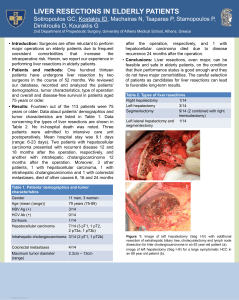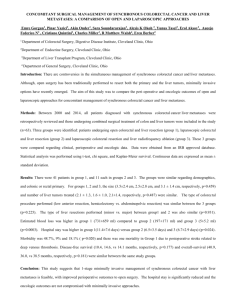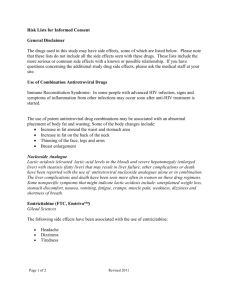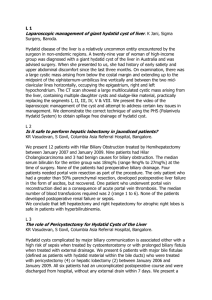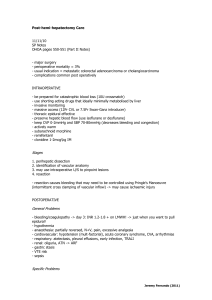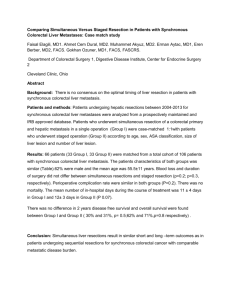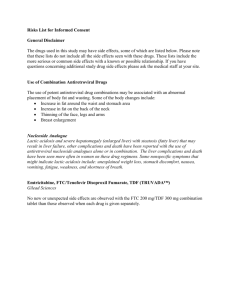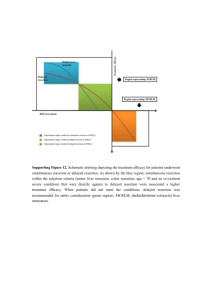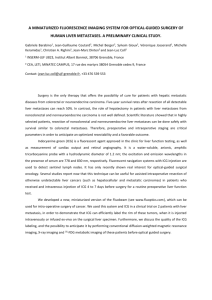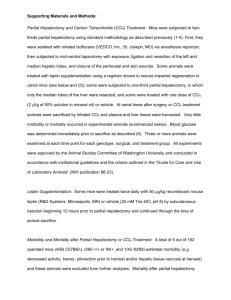أنموذج ( أ ) الخاص برسائل الماجستير و اطاريح الدكتوراة ( اخر شهادة
advertisement
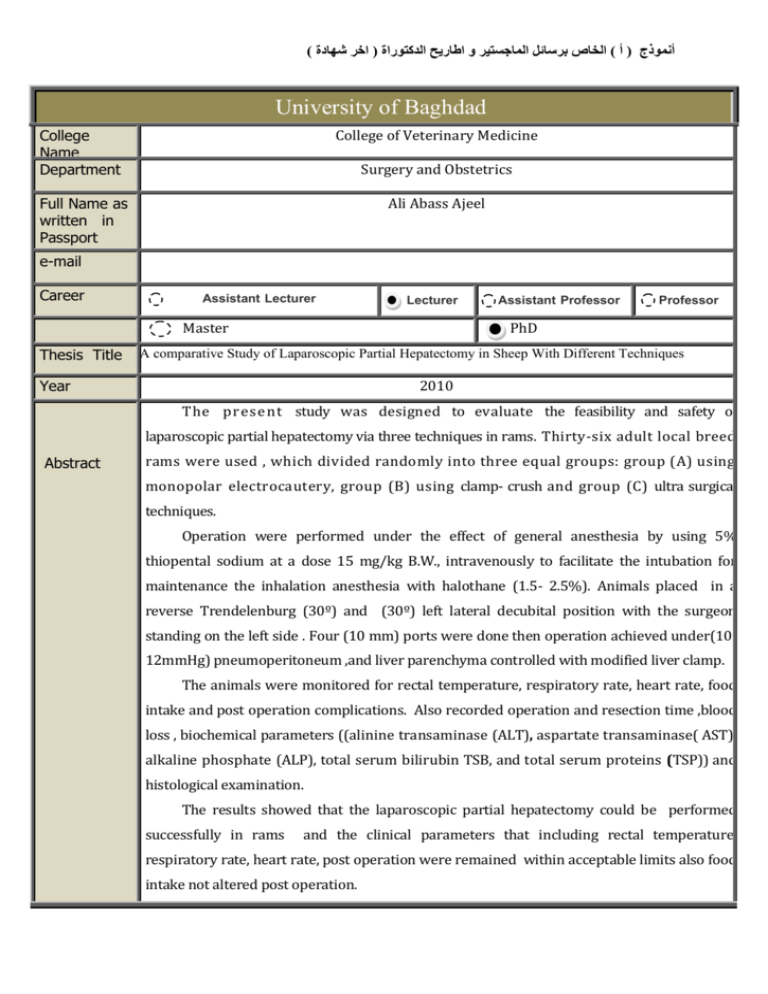
) أنموذج ( أ ) الخاص برسائل الماجستير و اطاريح الدكتوراة ( اخر شهادة University of Baghdad College Name Department College of Veterinary Medicine Full Name as written in Passport Ali Abass Ajeel Surgery and Obstetrics e-mail Career Assistant Lecturer Lecturer Master Thesis Title Assistant Professor Professor PhD A comparative Study of Laparoscopic Partial Hepatectomy in Sheep With Different Techniques Year 2010 The present study was designed to evaluate the feasibility and safety of laparoscopic partial hepatectomy via three techniques in rams. Thirty-six adult local breed Abstract rams were used , which divided randomly into three equal groups: group (A) using monopolar electrocautery, group (B) using clamp- crush and group (C) ultra surgical techniques. Operation were performed under the effect of general anesthesia by using 5% thiopental sodium at a dose 15 mg/kg B.W., intravenously to facilitate the intubation for maintenance the inhalation anesthesia with halothane (1.5- 2.5%). Animals placed in a reverse Trendelenburg (30º) and (30º) left lateral decubital position with the surgeon standing on the left side . Four (10 mm) ports were done then operation achieved under(1012mmHg) pneumoperitoneum ,and liver parenchyma controlled with modified liver clamp. The animals were monitored for rectal temperature, respiratory rate, heart rate, food intake and post operation complications. Also recorded operation and resection time ,blood loss , biochemical parameters ((alinine transaminase (ALT), aspartate transaminase( AST), alkaline phosphate (ALP), total serum bilirubin TSB, and total serum proteins (TSP)) and histological examination. The results showed that the laparoscopic partial hepatectomy could be performed successfully in rams and the clinical parameters that including rectal temperature, respiratory rate, heart rate, post operation were remained within acceptable limits also food intake not altered post operation. ) أنموذج ( أ ) الخاص برسائل الماجستير و اطاريح الدكتوراة ( اخر شهادة Short operation and resection time were significantly showed in group (C) (57.1±1.8 ) and ( 28.8±1.1) minutes respectively when compared with groups (A & B ) (82.9±5.9, 43.3±1.9) and (68.3 ±2.4 , 32.5±1.3)minutes respectively . There was no collection of bile seen in the abdominal cavity or subphrinic region during the exploratory laparoscopy on (3, 7, and 15 ) days post operatively. Complications that occurred in present study including Pneumo-omentum, port infection bleeding, regurgitation. and port hernia .Intra-operative blood loss was significantly reduced in group( B & C) (166.7±29.1 , 175±16.7 ml)respectively comparing with group (A) (241.7±29.1 ml ). There was no significant differences in the mean values of the liver function tests (ALT,AST,ALP,TSB and TSP ) among studied groups. Liver regeneration appeared early and extensive in group (C ) comparing to another groups (A&B) and the normal structures of the liver which consist from hepatocytes cord around central vein(CV) returned within 4months postoperation . Finally we can conclude that the laparoscopic partial hepatectomy can be safety performed under ultrasurgical technique with a modified liver clamp which was characterized by low blood loss , adequate hemeostasis ,short operation and resection time ,little adhesions ,don't altered the liver function test( LFT) and early regeneration .
